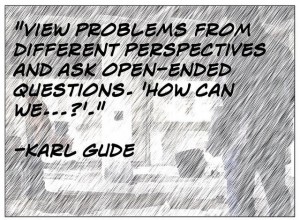9.22 Interview Questions
Having assessed both the information needs and the interviewee’s potential to respond, you are ready to develop an agenda of questions. These should be a comprehensive list of questions, setting forth everything you would like to know. The interviewer might ask some of these questions of a number of respondents while other questions might be designed only for a particular interviewee.
Types of questions

Except in survey research interviews, open-ended questions are most effective. An example of an open-ended question is when the focus group interviewer asks, “Now that you’ve tried our new product, tell me what you think about it.” Open-ended questions have the advantages of inviting interviewees to provide more specificity and depth in their response. In journalistic interviews, open-endedness is stressed, for it leads to spontaneity, interpretation by sources, cues for additional questions, and quotable phrases. An open-ended question in a journalistic setting might be, “What do you think about the new tax proposal?”
In the closed-ended question, the respondent must select one of a set responses provided by the interviewer. For example, most questions asked in Gallup and other polls are closed–ended: “How do you feel about the economy of the United States at this time?” “Very optimistic,” “somewhat optimistic,” “neutral,” “somewhat pessimistic,” or “very pessimistic.” One advantage of closed-ended questions is that a large number of interview responses can be analyzed relatively quickly and inexpensively.
Closed-ended questioning in the journalistic context is usually problematic. Compare the closed-ended question, “Do you think the new tax proposal is good?” with the open-ended, “What do you think about the new tax proposal?” Which will elicit more information and opinion from the interviewee?
Question Order
Each question in the interview agenda can give rise to additional questions. Some of these are follow-ups, such as requests for more information based on the idea just stated by the source. If you are too tightly tied to your own interview agenda, you may neglect to use appropriate follow-ups.
But don’t forget your original question agenda once the follow-ups begin. Rigidly adhering to the question agenda promotes one kind of completeness at the expense of expanding the topic and developing its new dimensions. Experienced interviewers learn, in time, to walk the line between the two hazards.

